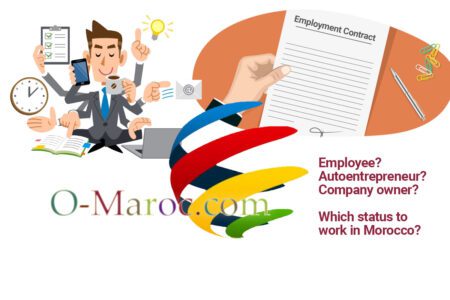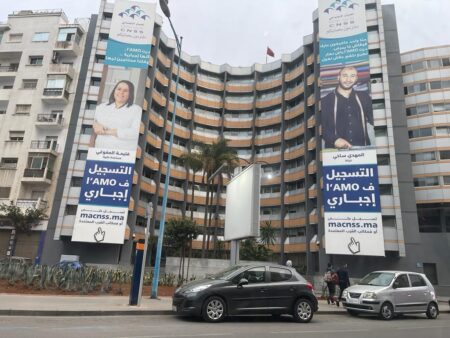Living in Morocco is all very well, but you still have to earn a living (unless you’re retired or an expat sent by your company).
Faced with this harsh reality, and current economic trends, here’s a list of four business ideas that should be thrown out as soon as they surface.
For some, it worked, but it’s too late; for others, it never worked, and here’s why.
A riad in Marrakesh (or elsewhere)
One day, a guy made a programme on M6 explaining how riads were increasing in value year on year, the market was flourishing, there were lots of tourists, and so on.
This programme and its little sisters fuelled the property bubble. The bubble started to crack around 2010, but it wasn’t too noticeable, as the new candidates for the Moroccan dream allowed those who had been disappointed to absorb their losses and pass on their business without it collapsing. But it was already becoming difficult. In 2011, we did a fix of a Capital TV programme, a ‘follow up’ to the initial report, and the riads were taking a long time to sell, some having been on the market for several months or even a year.
Riad owners came to demand unrealistic rents from their managers, which the average turnover could barely cover, and in return, many owners were ripped off by their managers (I still have a few Harry’s stories to tell).
Since then, with a steady fall in tourist numbers, which even the unrealistic proclamations of the Ministry of Tourism, carefully choosing “the fortnight in the town where it worked well“, can no longer disguise, the situation has become even more tense.
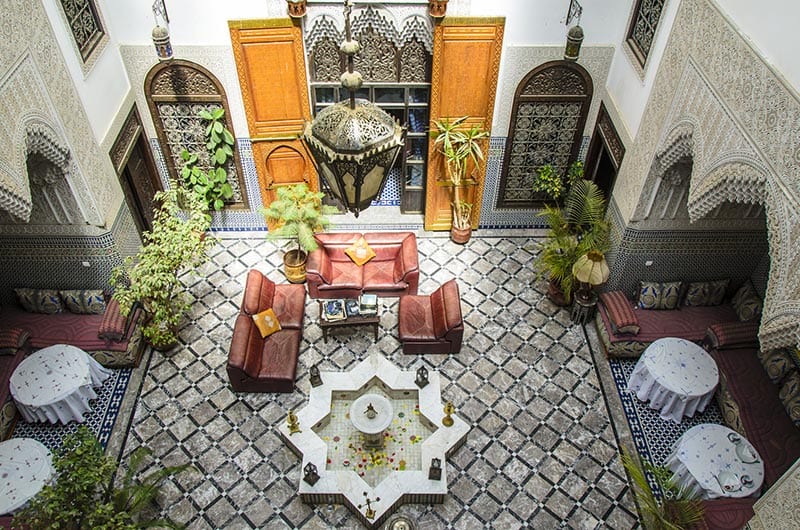
With a drop of 45% in the first six months of 2015, and the threat of Daechia scaring off many tourists, the tourism market in Morocco is at half-mast.
Today, investing in a riad (or guest house or hotel) means entering a shrinking market, with huge competition, much of which is far more professional than you are.
Investing in a “magical place to discover” on the assumption that there is less competition is not a good idea either: because in practice, nobody will come and discover it. Given the tourist market, remember one thing: if there’s no accommodation, there’s no customer. I know of NO place in Morocco that does not currently have an overcapacity in tourism.
The conditions for this to work, if you really want it to :
- have a lot of money to invest without being strangled by loan repayments
- have even more money to be able to make a luxury product, the only ones that are holding up well in the face of the crisis, and that will continue to do so
- have a sufficiently good knowledge of Morocco to be able to buy a really good deal
- be a tourism professional (we didn’t need one before, but we do now)
Opening a call-center
Just behind “riad in Marrakesh”, there’s “call-center”.
With the same problems as regards the abundance of supply.
But there’s one big difference… while the French government has no qualms about letting tourists go, it’s very annoyed to see unemployment rising as call-centre functions are regularly outsourced.
So, for the past two years, the French government has been fighting for the repatriation of call-centres, and it’s not doing so badly.

The quality of Moroccan labour is also a problem. These exhausting, relatively poorly paid jobs do absolutely nothing to motivate educated Moroccans, who give up at the first opportunity. And even educated Moroccans are not perfectly bilingual. In other words, sufficiently qualified staff are very expensive, as they are difficult to retain. And fewer and fewer companies are interested in contracts with low-skilled staff.
The big contracts (insurance, pension funds) are already taken. Companies that don’t have the same volumes have difficulty separating a call-centre into two, between “quality handled in France” and “non-quality handled off-shore“; the economic logic isn’t there when faced with the complexity of the organisation.
The lack of Moroccans who speak good English makes it nearly impossible to open the call-centre in English-speaking markets (where Malta and Egypt already have a presence).
What’s more, you can’t ‘do everything’ in a Moroccan call-centre. In particular, anything to do with clairvoyance and sex, which is particularly lucrative, does not comply with Islamic law, and call-centres have been closed for this, on the accusation of prostitution of female operators.
Finally, Maroc Télécom is not really the ideal partner. The lines are expensive, and outside Casa the performance isn’t always there. Things always start well, and then one day they fall apart.
The conditions for it to work if you want it to:
- be based in Casablanca, the country’s economic centre, or in its outer suburbs to reduce the cost of land and salaries (for example, in El Jadida)
- come with an ironclad contract, long enough to ensure that the operation is, at worst, ‘white’.
- not to manage remotely
- or do a ‘coup’ and leave with the cash… but this is a different type of business
Selling Moroccan products online
A tempting idea on the face of it, you’re on the spot, you can buy at the best price, select the best craftsmen yourself, take advantage of the ethnic, organic, fair trade wave, and the fashion trend that promotes argan oil and saffron.
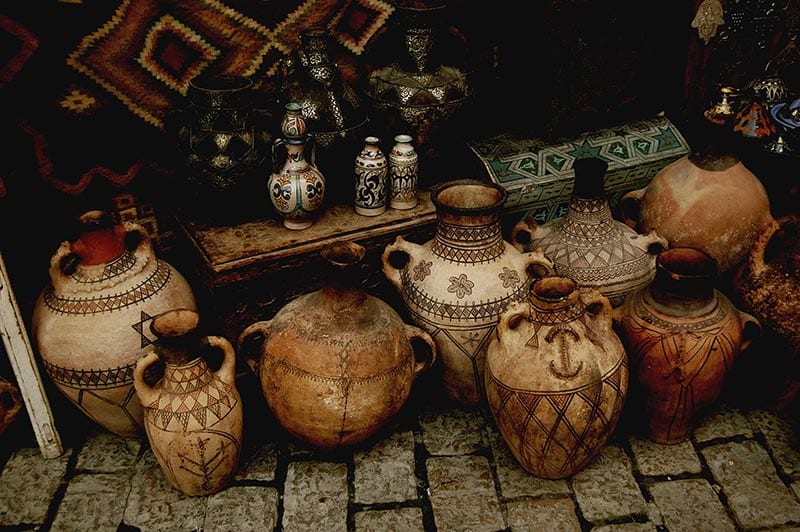
I’ve done three online shops, for three different clients, all three of which failed for the same reasons:
- shipping to Europe is international, expensive and slow, with customs clearance; we’re rediscovering just how great the European customs union is!
- online payments in Morocco are complicated compared to a mail-order contract in France, they’re expensive, and not all alternatives to Paypal, such as Hipay, are available
- customs duties are expensive, even without additional import taxes. A customs clearance file costs at least €120, so you have to work on large quantities
- for some products (everything organic), certificates are expensive and import procedures in Europe are very complex
- And above all, customers are afraid to pay in Morocco and buy from a Moroccan company that they feel powerless against in the event of a dispute.
- there will always be a Moroccan who will sneak the same products into his luggage and offer them for 50% less on Ebay (normal, it’s black market)
- for some products, online competition is as tough as for riads in Marrakesh.
The conditions for it to work if you want it to:
- buy in Morocco, ship to Europe and sell through a local structure
- find original, quality products, even if you have to manufacture them, so that you can sell at a high price, without direct comparison, and absorb the cost of customs duties
- have a really professional, well-referenced website, and spend time on the Internet to sell your brand (I can help you with this)
- really work in several languages, to address markets where there is less competition than in French and Spanish
- keep a very close eye on your suppliers – it’s almost like in China, every delivery and every purchase has to be checked (Bernard can help you with that)
- have the time (and therefore the money) to wait for the infrastructure problems to disappear, as things improve rapidly.
Real estate agency or property developer
Many agencies were set up by French immigrants (a few by British and Americans), who had the advantage of acting as real intermediaries between
- Foreign clients who were completely at a loss when faced with local negotiation methods, legal particularities, notions of whether land was titled or not, etc…
- Moroccan sellers who were not always able to explain all this clearly, who preferred to sell ‘European style’, or even who simply preferred to take advantage of the ‘guarantee’ of an estate agent whose passport provided reassurance
(which, given the number of scams and marcellations, was not always justified). What’s more, the profession is completely unregulated, and anyone could call themselves a samsar (intermediary) and post ads online.
I hesitated to add this fourth activity, because the property market in Morocco is not experiencing the same crisis as the tourism market.
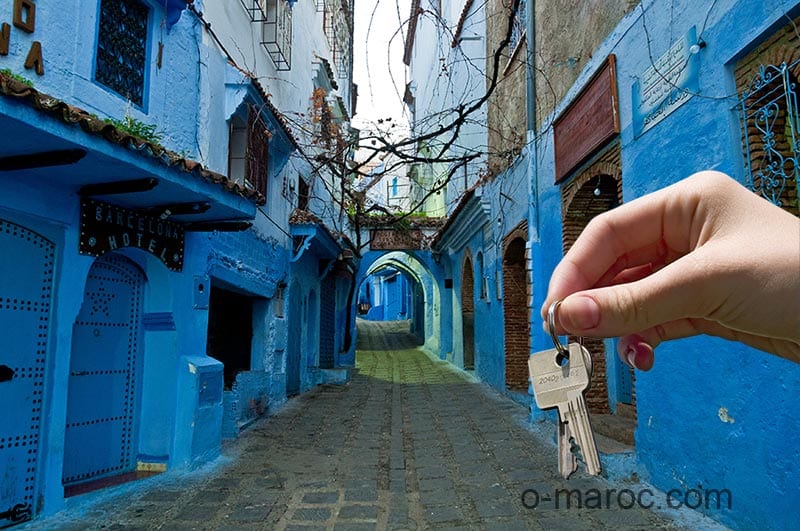
However, in the specific case of an agency that mainly targets foreign customers :
- the ‘tourist’ segment of the market is in decline (see ‘riad in Marrakesh’)
- new arrivals don’t have the same purchasing power as they used to; a few years ago, people came to Morocco to ‘live well’, but today we see many Europeans driven out by the crisis who come to Morocco because they can no longer afford to live in Europe; as a result, they buy much more rarely, settling for much less luxurious rentals…. the market is shrinking in this segment
- the most dynamic segment is that aimed at Moroccans, who are increasingly looking for quality accommodation, and at Moroccans living abroad. But here, being a foreigner offers no competitive advantage.
In short, real estate in Morocco is both an interesting sector and a very difficult one, with lots of scams, legal difficulties and competition. A newcomer needs to have real skills and something extra to succeed. “Real estate, which has been ‘shrinked’ by the crisis, will surely become an attractive sector again, but that’s not the case today.
Don’t despair… it’s still possible to earn a good living in Morocco. In the next post, four business ideas that have a very good chance of succeeding!
 A typo or syntax error? You can select the text and hit Ctrl+Enter to send us a message. Thank you! If this post interested you, maybe you can also leave a comment. We'd love to exchange with you !
A typo or syntax error? You can select the text and hit Ctrl+Enter to send us a message. Thank you! If this post interested you, maybe you can also leave a comment. We'd love to exchange with you !


